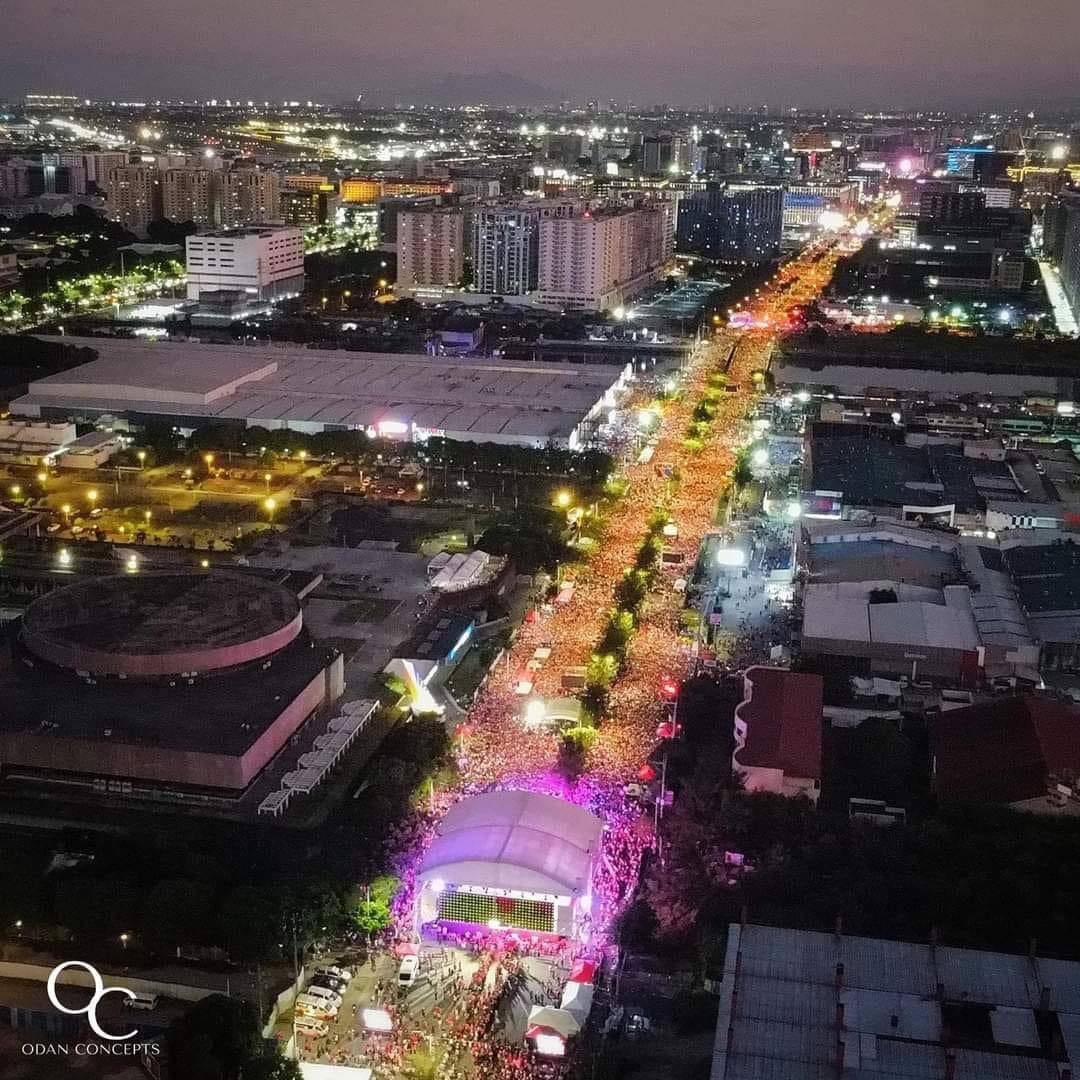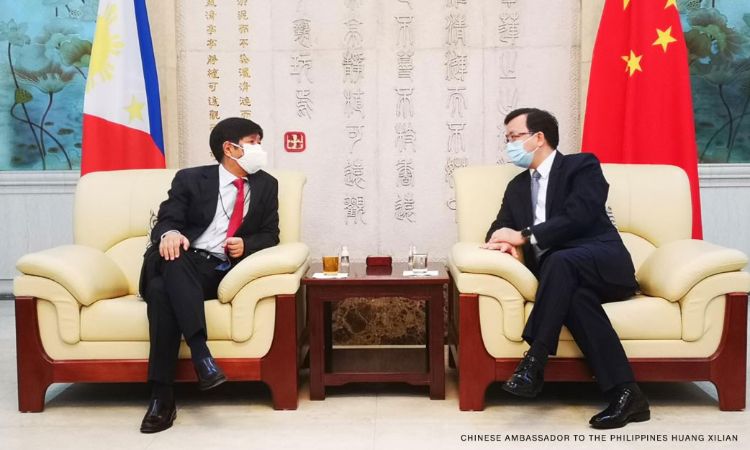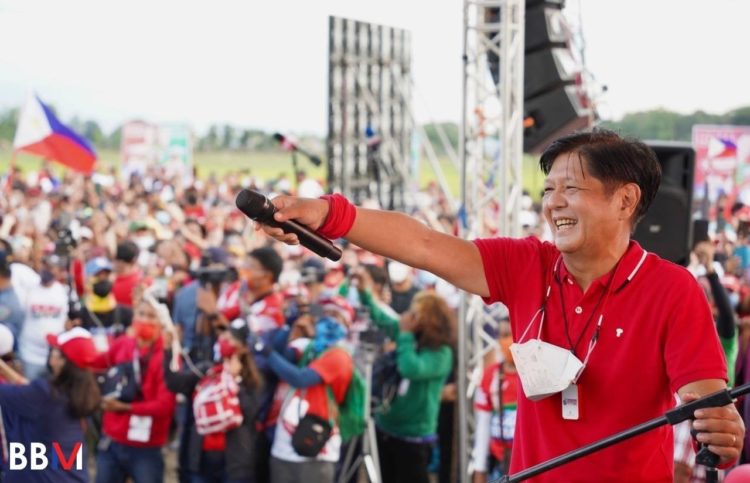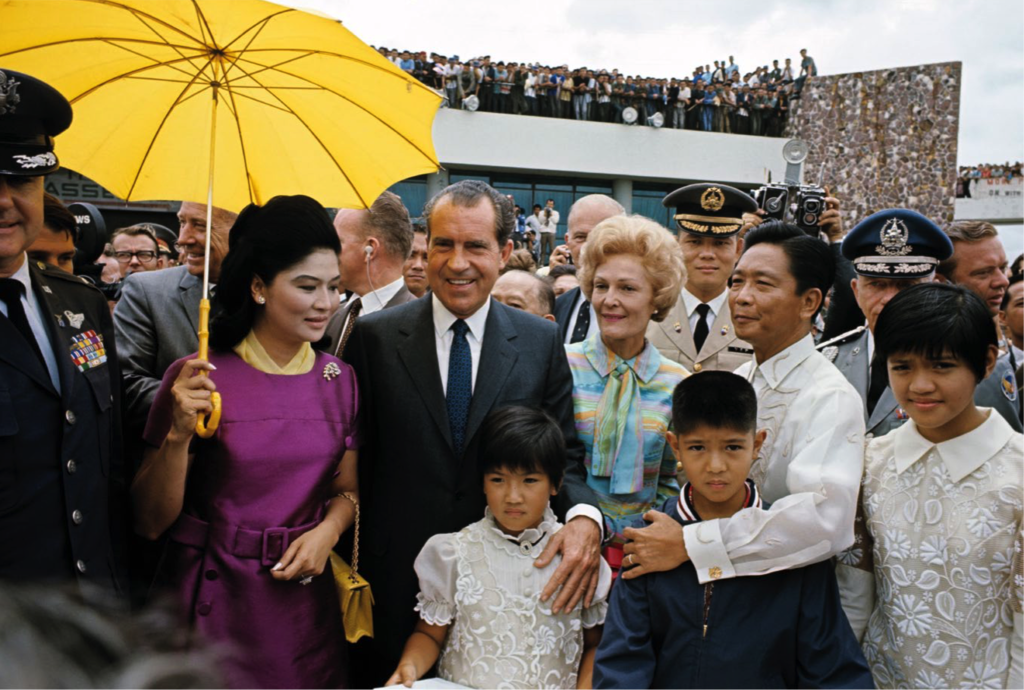His son, on the other hand, never finished a degree as he was found to be “lazy,” as described by his own father. Marcos Jr. went to study at the prestigious University of Oxford in Britain, where he studied Philosophy, Politics, and Economics but did not finish. This is not to say Marcos Jr. did not have any accomplishments.
He was vice governor, then governor of Ilocos Norte under his father’s dictatorship. He would later hold the governorship, congressman, and senatorial positions from 1992 to 2016 after members of the family were allowed to return to the Philippines. During this time, he did not pass any significant laws.
His election campaign heads have not let the duo participate in any national debates. Marcos Jr. has been prone to show his lack of eloquence, intelligence, and knowledge of Philippine culture and laws. Notably, during a radio show, he did not know the basic structure of government and did not know how much the minimum fare for a jeepney ride was – the most common form of public transportation in the Philippines.
Robredo and Other Presidential Candidates
Observers have noted that he actively avoids reporters, interviews, and hard-hitting journalists as opposed to other candidates such as world-famous boxing icon Manny Pacquiao who actively participated in debates, and Manila Mayor Francisco “Isko” Domagoso, who has been the so-called “voice of the masses.” Other candidates who have not strayed from the Filipino public are labor leader Ka Leody De Guzman, Senator Panfilo Lacson, and of course, Vice President Robredo.

Robredo is widely seen as the top candidate to beat Marcos Jr. based on polls. Robredo is an economist, having graduated from the University of the Philippines, and a lawyer. She also holds several doctorate degrees and has worked traditionally as a public attorney and a professor prior to her government service.
She and her running partner, Senator Francis Pangilinan, accompanied by a coalition of opposition figures and their supporters called the “Pinks” (“Kakampinks” meaning “Team” and “Pink”) are taking to the streets and campaigning to prevent the Marcoses from taking Malacañan Palace, the seat of government in Manila.
Marcos Favors China over the US in the Indo-Pacific
The Philippines and the US have been widely considered allies for the majority of the two countries’ history. Rodrigo Duterte had earlier shifted to the Chinese sphere of influence following funding and loan promises that would fund the President’s infrastructure projects, of which minimal has been completed in the past six years.
Duterte would somewhat shift back to the US following former President Donald Trump’s win in 2017. Duterte had an extreme dislike for former President Barack Obama, who he called a “son of a whore” on national television. Duterte had also earlier offered the use of Philippine military bases to the US in case fighting from the Russo-Ukrainian war spilled over.
Marcos Jr. has been tremendously vague with his campaign, not revealing any plans he has for the country. However, he has been clear on one thing: His preference for China. He has echoed President Duterte’s rhetoric on the South China Sea dispute in the Pacific, where they think that the Chinese are the Philippines’ friends.
“I think we can come to an agreement. As a matter of fact, people from the Chinese embassy are my friends. We have been talking about that,” he explained. “That arbitration is no longer an arbitration if there’s only one party. So, it’s no longer available to us,” Marcos Jr. said.

He further said that he would not ask for US help in dealing with the Chinese. “No [I will not ask the US for help]. The problem is between China and us. If the Americans come in, it’s bound to fail because you are putting the two protagonists together.”
Marcos has also doubted the US capacity to help the Philippines in later interviews:
“What kind of help? Will they bring aircraft carriers and aim at warships? If war breaks out, who loses? The Philippines. So let’s not allow the problem to escalate to a shooting, to a war,” he said. “What is the other solution? Let’s say we allow the United States to come in and defend us. We can’t do that.”
But on other occasions, he has expressed that he will not terminate the Visiting Forces Agreement with the US, a policy that is highly controversial in the Philippines. He also further noted that he was not concerned about the Russo-Ukrainian war and believed that there was no need for the Filipinos to stand with the Ukrainians, which drew the ire of opposition leaders and activists.
His running-mate also shares the same sentiments as Sara Duterte’s father, President Duterte has been friendly with the Chinese and Russia in the past. Despite their stances, the Philippines voted in favor of a UN resolution condemning the Russian invasion of Ukraine.
Economically, a UK-based think tank, Pantheon Macroeconomics, projects that a Marcos Jr. win would lead to a risk in the Philippines’ economy and investments as investors see Marcos as an investment risk due to their family’s corruption. As a result, it could be possible that foreign firms would pull out of the Philippines amid fears of instability and incompetence, as Marcos Jr. is running without an economic policy.
Currently, Marcos Jr. and the entire Marcos family are reaping the benefits of disinformation and frustration with the “Daang Matuwid” or “Straight Path Governance” popularized by the Aquinos (the Marcos’ sworn political rivals).
Quite interestingly, the Marcoses cannot enter the US as they have active US warrants of arrest because they did not comply with a Hawaii court’s ruling on their stolen assets which were supposed to be distributed to the families of the people killed during the dictator’s 20-year reign. They are considered criminals under US law, being wanted as they failed to comply with the law.
They also have a pending $353.6 million fine in contempt of the court, the largest contempt case ever on record in the US. In the Philippines, his mother, Imelda, has been convicted of 7 counts of graft as she stashed loot and billions in Switzerland and Swiss bank accounts. Marcos Jr. is also a convicted tax evader, evading P203.8 billion in taxes.
May 9th will be a decisive election for the Philippines. If Marcos wins, political scientists predict that further democratic backsliding may occur due to both Marcos and Duterte families being more about staying in power than governing the islands well. More so, human rights activists, journalists, and the majority of the public that belongs to the opposition fear the election of the Marcos-Duterte ticket will lead to brutal repression and violence against them.











COMMENTS